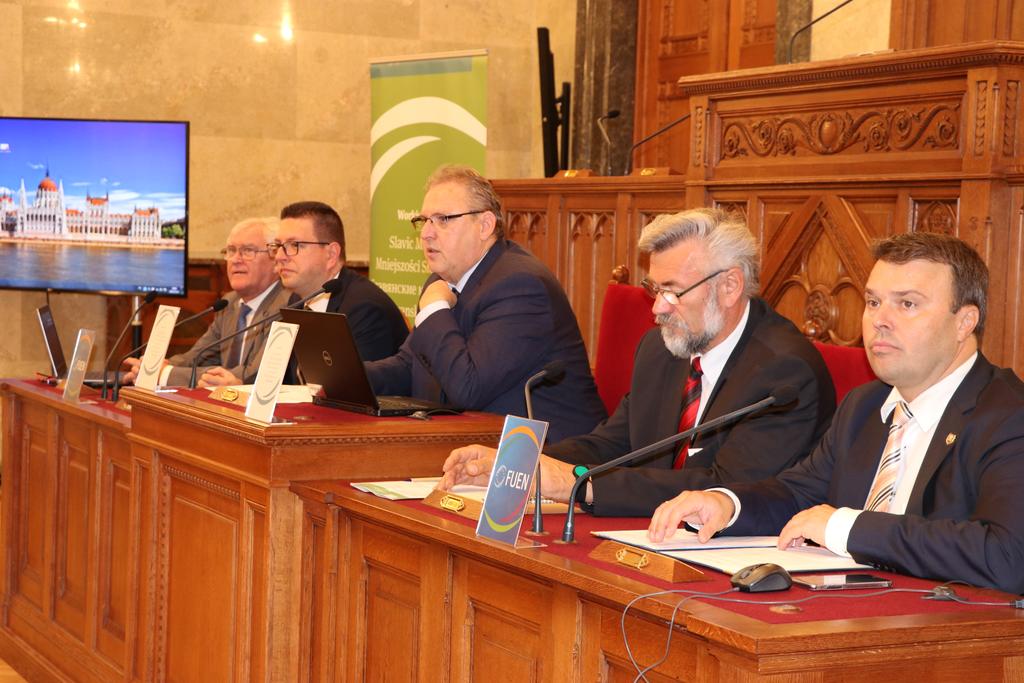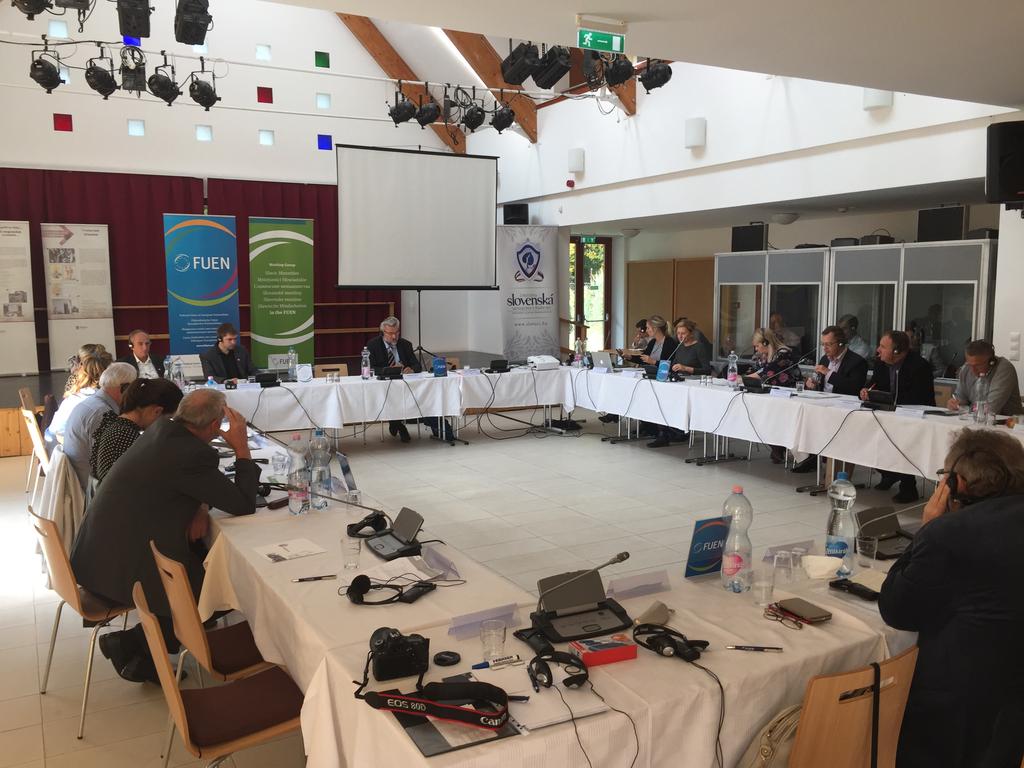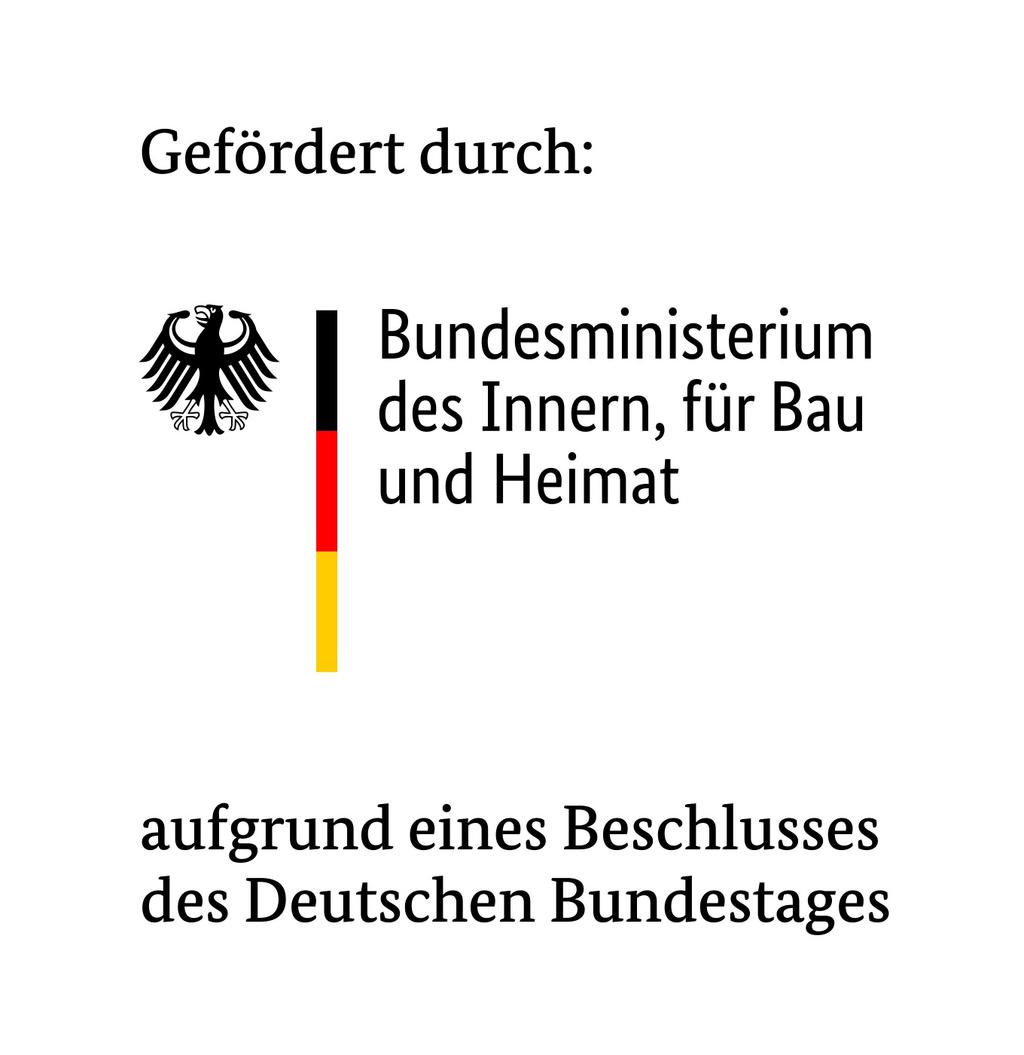
Slavic Minorities in the FUEN identify measures to increase the use of minority languages in public
24.10.2018“The Working Group of Slavic Minorities offers an excellent opportunity to cooperate closely and think of a common strategy. We all face different situations, for example the Carpatho-Rusyns in the Ukraine are not recognised, but the FUEN family and some EU member states have already shown a great amount of solidarity during the Minority SafePack campaign. This was only the start, we do not stop here.” – said Loránt Vincze, FUEN President at the official opening of the 21st Seminar of Slavic Minorities in the Hungarian Parliament. The annual FUEN Seminar of the Working Group of Slavic Minorities took place between 18th-21st October 2018 in Hungary. It was organised by the FUEN in cooperation with the Slovak Minority in Hungary, Celoštátna slovenská samošpráva v Maďarsku (CSSM).
The opening was a great success and gained a lot of attention. Ten out of thirteen speakers of national minorities in Hungary were also present at the ceremony. Mr. Antal Paulik, Spokesman of the Slovak Minority in the Hungarian Parliament said that he believes there never have been so many Slavic speaking minorities in the Hungarian Parliament, and they are glad to host the event. Mr. Richárd Tircsi, Director General of Nationalities, talked about the good practices in Hungary, where the state support to the minorities tripled over the last years. “But we still see a need to invest more, especially into the language acquisition”, he added. Mr. Imre Ritter, parliamentarian Spokesman of Minorities in Hungary, pointed out that since this year the Croatian minority is also represented in the committee of national minorities. Mr. Bernhard Ziesch, FUEN Vice-President presented the main points of the seminar, which are the self-governing system, the political participation and the digitalisation.
The participants of the Seminar were very interested in the system and the structures of the minorities in Hungary. They could exchange ideas and thoughts with other spokespersons of minorities as well as addressing their issues. The exchange between the Rusyns from Hungary and Rusyns from Ukraine was also interesting. Whereas the Rusyns in the Ukraine get no state support at all, the Rusyns in Hungary have 44 self-governed municipalities, two schools where the language can be learned, moreover they are currently trying to establish one common language from several dialects. Many participants mentioned that the system of protection, promotion and support for the national minorities in Hungary can be seen as exemplary.
After a short tour around the Parliament, the Seminar continued in the Slovak Gymnasium in Budapest, where the pupils prepared a short cultural program. Ms. Erzsébet Hollerné Racskó, CSSM President, explained the Slovak self-governance system and their educational system, which includes 45 Kindergartens, 35 elementary schools, two high schools and one academic department. Dr. Katalina Király, Manager of the Slovak Cultural Institute, explained more about the cultural heritage and its protection and promotion.
In the evening the participants were hosted by the municipality of Dabas, which prepared a traditional cultural and culinary program for them. Besides presenting their Slovak schools, the mayor of Dabas talked about the importance of developing attractive possibilities for the citizens so that they stay in the area and do not move to bigger cities. The hosts put a lot of effort in preparing a nice programme and the participants thanked them for that.
On Saturday, 20th October the annual meeting of the Slavic Working group took place in the village of Mlynky / Pilisszentkereszt. The focus was on the use of minority languages in the public sphere and on measures to improve it. There were many contributions from participants, which made primarily aware of the challenges they are facing using their language in the public. For example, the difficult situation of the Pomak minority in Bulgaria was presented, where their representative was arrested and is to be sued for the use of the Pomak language. The FUEN Presidium is closely following this case and will prepare a resolution to this case.
Best practices were also shared, e.g. the latest report of the Government of Saxony about the state of Lusatian Sorbs, the plan of State Brandenburg to empower lower Sorbian language or the recent change of the Carinthian constitution where the Slovenian Minority is mentioned for the first time. The working group could identify many measures to increase the use of minority languages in public, e.g. to empower young people to use their mother tongue, to increase the media presence of the minority languages (especially in the digital and social media) and to develop an acceptance strategy. The Working Group of Slavic minorities concluded the meeting with a lot of concrete outcomes and dedicated to implement as many as possible. The next Seminar should take place in 2019 in Carinthia, Austria.
More Photos: https://www.flickr.com/photos/fuen-fuev/albums/72157702767982805/page1



SAJTÓKÖZLEMÉNYEK
- FUEN wishes you a peaceful Christmas season, restful days and a bright, hopeful start to the new year!
- FUEN calls on the EU to act over systematic ethnic-based land confiscations in Slovakia
- Women of Minorities conference in Budapest calls for structural change to ensure equal political participation of minority women
- FUEN President Olivia Schubert at UN Forum on Minority Issues in Geneva
- "Laboratory of Peace": 28th Seminar of Slavic Minorities held in European Capital of Culture Gorica/Gorizia
- Equality in Political Participation and Representation: Third “Women of Minorities” Conference to Be Held in Budapest
- FUEN Working Group on Education discusses challenges and future of minority schooling in Europe
- 28th Seminar of Slavic Minorities in Europe to take place in Gorica/Gorizia, Italy
- Olivia Schubert in her first interview as FUEN President
- FUEN Assembly of Delegates elects new leadership – Olivia Schubert becomes new President














